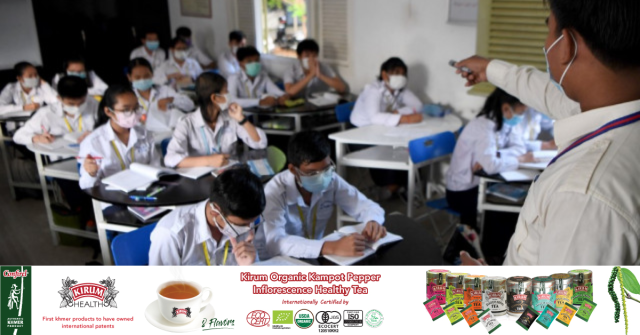Experts Chart Path After Trade Preferences End

- By Chhuon Kongieng
- October 18, 2023 11:51 AM
PHNOM PENH – Experts see digital adaptation and customer-based production as the way to make up for the potential loss of preferential tariffs when Cambodia graduates from Least Developed Country (LDC) status.
Cambodia is one of 46 countries in the category and has fulfilled two of the three criteria required for graduation. It met the graduation criteria for the first time in 2021 and will be assessed again in 2024. This could pave the way for the country to graduate from the status in 2027.
Ouch Chandarany, an economist at the United Nations Residence Coordinator Office, said that after LDC graduation, Cambodia can achieve remarkable achievements in market base, financials and stock investment from international sources with more credibility.
However, it comes with challenges such as the limitation of finances and technology because Cambodia will lose some tariff preferences from developed countries and use only domestic finance, she said.
She noted that improving education and health, public services, the social security system, and digital adaptation can help Cambodia raise income.
However, after graduation from LDC, the government cannot overlook people who need help, she said at a Konrad-Adenauer-Stiftung (KAS) Politic Talk about Cambodian economic diversification.
“Instead, the government should make an effort to fix what is lacking. For example, promoting digital adaptation in education for people in some areas who have not yet received it.”
Sok Bunthorn, deputy director-general for international trade of the Ministry of Commerce, said promoting technology helped create market production and exports.
Markets were increasing because there were non- traditional ways to export goods. Using technology to increase production and build transportation could be the strategy after graduation.
“We can increase jobs for employees and attract more investors,” he said. “Meanwhile, export performance can help the growth industry through more expressways, such as the Phnom Penh-Bavet expressway, to make transportation faster and easier.”
Jan Cernicky, head of economy and innovation from KAS in Berlin, said to overcome the challenge of tariff preferences from developed countries, Cambodia should produce products with customer bases.
The government has been working on promoting digital adaptation by founding the Techo Startup Center and launching a long-term vision called "The Cambodia Digital Economy and Society Policy Framework for 2021–2035" to promote digital adaptation and transformation in all sectors of society, including the state, citizens and businesses.
Chandarany, Bunthorn and Cernicky expect Cambodia to meet the UN Committee on Development Policy graduation standards in 2024.















